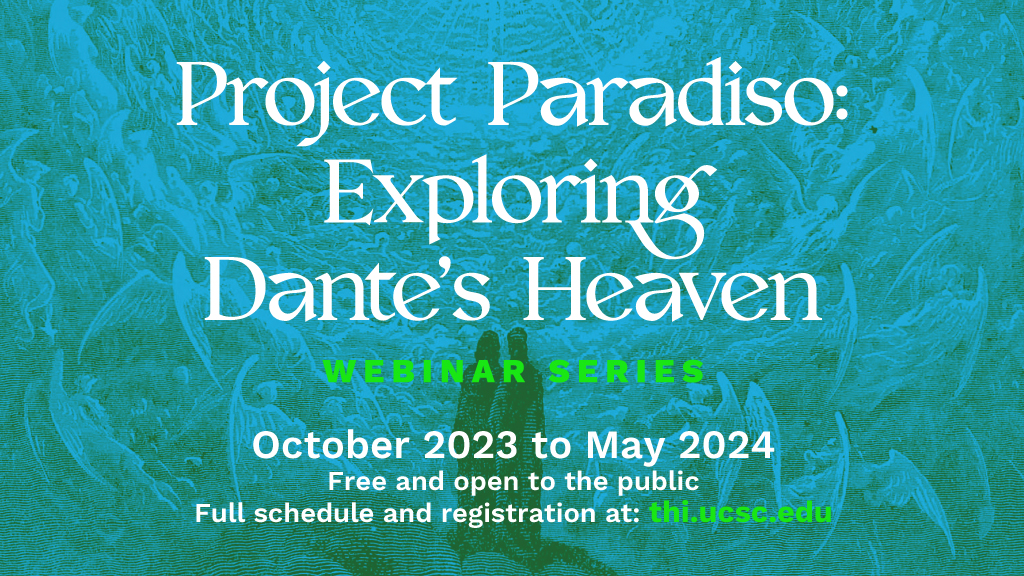Events

- This event has passed.

Project Paradiso: A Gateway to Dante’s Heaven – Episode Fifteen – Global Perspectives, Part 2 & 3: Paradiso in World Religions & Spirituality and A Text that Fosters Interreligious Dialogue
May 17, 2024 @ 9:00 am - 10:30 am | Virtual Event
Dante’s Paradiso is the least studied and the least understood of the three parts of the Commedia. Yet it is arguably the most important for the dynamism and originality of the literary, theological, and philosophical inquiries that take place there. It is also a singularly important interpretive guide for a full understanding of the entire Commedia. It is a poem that asks to be tackled by a community of engaged readers: here it’s your opportunity! This year-long series of webinar workshops led by world-renowned scholars will take you on a deep reading of the Paradiso and an unforgettable journey to the heart of Dante’s universe. This virtual series will reward both first-time and expert readers of the Commedia with an opportunity to delve deep into one of the most complex and daring speculative poems ever written. We’ll be meeting online almost every other week from October to May. See the Project Paradiso page for full schedule.

Eileen Gardiner, a research fellow at the University of Bristol, specializes in medieval visions of the otherworld. She is the author of Visions of Heaven and Hell Before Dante and Medieval Visions of Heaven and Hell: A Sourcebook. She has also published on pilgrimage with her 2010 book on The Pilgrim’s Way to St. Patrick’s Purgatory. She has also published five volumes on hell in various religious traditions, including Hinduism and Buddhism. She holds a Ph.D. in English Literature and Medieval Studies. With Ron Musto, Eileen is a co-founder and co-publisher of Italica Press, the former co-director of ACLS Humanities E-Book and of the Medieval Academy of America and co-editor of its journal, Speculum: A Journal of Medieval Studies.
Presented by the Humanities Institute and the Department of Literature Italian Studies. Sponsored by the University of California Humanities Research Institute, Siegfried and Elizabeth Mignon Puknat Literary Studies Endowment, and Porter College

